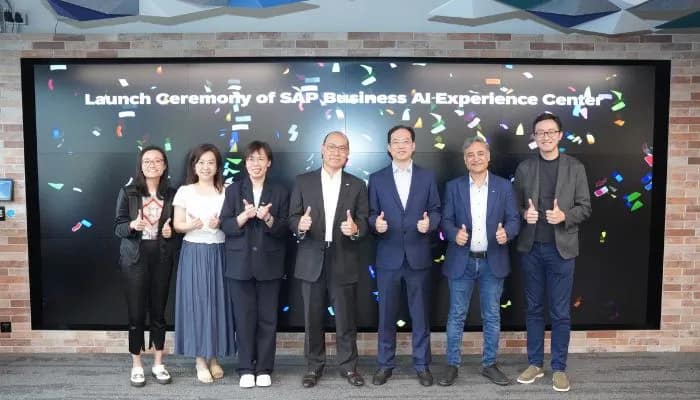Singapore – The Singaporean government has announced a S$1b investment plan on AI in five years, a move that was announced as part of the nation’s Singapore Budget 2024 presented by Deputy Prime Minister and Minister for Finance Lawrence Wong
“Part of the investment will be used to ensure that Singapore can secure access to the advanced chips that are so crucial to AI development and deployment. We will also work with leading companies in Singapore and around the world to set up their AI Centres of Excellence here. We want these Centres to spur industry collaboration and innovation, and drive greater value creation across the whole economy,” he explained.
In the budget, Wong stressed how Singapore is already recognised as a serious player in AI development. Furthermore, he noted that they aim to go further–to build new peaks of excellence, and crowd in private sector investments.
Following this, MARKETECH APAC sought insights from various marketing industry leaders to learn more about their perspectives on this recent government move, and how the industry can use this to move forward.
Dan Bognar, Vice President & Managing Director, JAPAC, HubSpot
It is encouraging to see Budget 2024 committing more than S$1 billion over the next five years to accelerate Singapore’s Artificial Intelligence (AI) adoption and innovation. We have arrived at a fascinating intersection where technologies like AI have the potential to play a pivotal role in nation-building and in helping to catalyse economic resilience.
The reality is that AI provides an opportunity to enhance the future-readiness of Singapore’s growing digital economy. With its ability to improve productivity, AI represents a long-term, sustainable solution for firms to deal with ongoing economic challenges such as rising costs and increased complexities as the business grows. This will be especially relevant for SMEs, where technology can empower them with the means to compete with larger industry counterparts.
As the adoption of AI tools grows, organisations will also require targeted guidance to streamline their technology platforms and data sources. As many business leaders can attest to, a fragmented set of technology platforms, often a result of adopting multiple point solutions alongside legacy platforms, leads to disconnected systems that impede data, productivity and workflows. These shortcomings will likely increase overall operating costs, compromise the customer experience, and negatively impact business outcomes.
Continuous learning has become essential in ensuring that Singapore’s workforce remains in step with technological changes. As the digital economy grows, enterprises who are well-equipped to understand AI’s potential, and able to move quickly to lay a robust foundation for its adoption, will stand to reap the most benefits. These programmes will enhance businesses ability to reinvest in their employees as they capitalise on this change.
Mao Gen Foo, Head of Southeast Asia, Qualtrics
It’s pleasing to see Singapore’s continued commitment to upskilling initiatives, as highlighted in this year’s Budget, along with a significant investment in local AI capabilities and skills.
The newly announced SkillsFuture Level-Up initiative, aimed at supporting mid-career workers in acquiring new skills and competencies, is particularly encouraging. Programmes like this recognise the crucial role this demographic plays in our economy and the need for support in helping our nation’s workers adapt to evolving demands and technological advancements.
The increased focus and investment in AI capabilities, talent, and industry development is also exciting and important for Singapore to strengthen its position as a business and innovation hub. Singapore boasts one of the highest global acceptance rates for AI in the workplace, which supported by the government’s ambitions to set up new AI centres of excellence and investments in upskilling programmes, will empower a new cohort of talent and create high demand for skilled professionals.
Moreover, to ensure Singapore can attract and retain the talent needed in the future, this investment and focus on skills must be complemented by ensuring workers are provided with employee experiences that enable them to do their best work and create high-performing, highly productive teams.
Organisations that embrace this people-centric approach and empower their teams to excel in a period of technological and societal change will be the true standouts, propelling the nation towards a prosperous and competitive future.
Smith Leong, Havas Play Lead at Havas Singapore
Like any other industries, there are 3 things that matter to clients in advertising – Speed, cost, and quality. Based on the trends and what we have observed over the last few months, we can safely say that AI tools have shown us the possibilities of answering all 3 factors when used right. We have already started using some of these tools and they have definitely improved our quality of work at Havas.
We welcome the investment by the government in training as we can foresee the potential increase in productivity and quality of jobs. Talents will be able to do more, and better within a shorter time. That also means the potential increase of profit in relation. The challenge for such transition has always been due to the initiation cost and resources involved for both businesses and individuals.
With the initial investment by the government on AI, we can see the potential of Singapore being at the forefront of things which will help us attract both overseas talents and businesses trusting us with their investment, and that will continue to fuel the industry which higher interest and demand.
Kamal Brar, Senior Vice President, APAC, Confluent
I am glad to see the increasing local investments and upskilling support for Singaporeans and businesses to train and make the best of AI innovations. We live in an incredible time for innovation today where AI is driving significant productivity improvements for businesses in Singapore. While AI can’t replace the intentionality, creativity, or awareness of a human, it can automate the menial day-to-day, allowing employees and companies to focus on the most valuable tasks.
As consumers, we have already tasted the convenience of mobile apps that can process requests immediately, reducing waiting time from days to seconds. With AI, we can also expect businesses to operate closer to the speed of life, that is, in real time. Minister Wong aptly reflected that emerging technologies will change the way expertise is defined and how value is created. One good example is in customer engagements. The ability to access data in real time, supported by AI to analyse previous interactions, individual preferences and behaviours, will help to make the business feel more human. Other possibilities can also include preventing fraud for a fintech app or handling an online retail order and marking out the most efficient delivery route.
Such value of AI is deeply dependent on having clean, trustworthy, up-to-date data. Organisations can tap on real-time streams of accurate data to keep up with AI-driven change. For this, companies in Singapore (small or big) should actively help employees to retrain and upskill in data management with the SkillsFuture Level-Up programme and new grants, especially as we see more AI centres of excellence open up here.
Eileen Chua, Managing Director of SAP Singapore
The increasing need for employees’ training in AI, reflects on Singapore’s Budget 2024 focus and anticipates an ever-evolving business landscape. With the rising demand for AI expertise in this digital economy, building skills-centric organizations where expertise and know-how take precedence over roles and titles will improve business agility and employee experience. In order to achieve this, companies must have a holistic view of their workforce and ignite potential by providing opportunities for growth and development.
In line with the Singapore’s National AI Strategy 2.0, SAP has also named SAP Labs Singapore as a global AI hub, with the aim of developing reliable, relevant and responsible business AI applications for customers and partners globally, while fostering innovation through a private, public partnership approach.
Sanchit Mendiratta, Managing Director, Merkle, CXM Group, dentsu Singapore
Over the past six decades, Singapore has consistently positioned itself at the forefront of global innovation and economic growth. From capitalising on its strategic geographic location to foster trade to diversifying its economy from manufacturing to cutting-edge fintech, Singapore’s journey is a testament to foresight, adaptability, and relentless pursuit of excellence.
In the last 14 months alone, the world has witnessed unparalleled advances in Artificial Intelligence (AI), signalling a pivot that promises to redefine our way of life, work, and interaction with technology. This era of rapid technological evolution underscores the power of individual creativity and potential to generate significant impact. In light of emerging narratives about the possibility of ‘one-person unicorns’, it is clear that the ability to drive change is increasingly democratised, residing not only within VC-funded start-ups, big tech, or established multinational corporations but also within the reach of every individual connected to the internet.
The Singapore government recognizes the transformative potential of AI and is committed to ensuring its benefits are accessible to all. By empowering Singaporeans with SkillsFuture credits and monthly training allowances, alongside initiatives designed to encourage companies to adopt AI, the government is fostering a dual approach to innovation. This strategy ensures a comprehensive understanding and application of AI across all levels of society and the workforce, from the ground up by the people and from the top down by companies.
We are on the cusp of a new era where AI is not just a tool for operational efficiency but a catalyst for societal advancement and the empowerment of every individual. The government’s efforts to evangelize AI capabilities reflect our dedication to preparing Singaporeans for the future, equipping them with the knowledge and skills to navigate and shape the emerging new world order.
Thus, the future Singapore envisions is not merely a forecast, but a reality Singaporeans will actively create.
Rebecca Nadilo, Managing Director – Iris Singapore
There’s still so much to learn about the applications of AI – and most importantly – there’s much to teach about it. Singapore’s investment in tech, training and infrastructure means we’re in the best position to beta test its application and understand where, how and who is best to use it.
Tin Sanchez, Executive Creative Director – Iris Singapore
Change is scary – and AI marks a change in the way we do and make things. The budget can allow mastery of AI and overcoming our unease around it. My hope is that it boosts human creativity even more.















